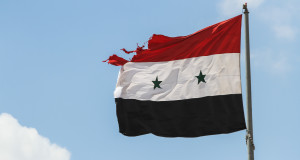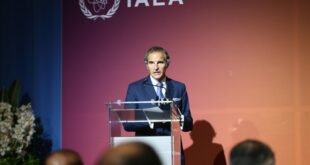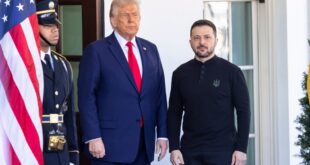The leaked reports circulating in Ankara that there have been a dispute between the Turkish Armed Forces and President Erdogan about shooting the Russian jet will take time to verify. Yet, it has been persistently reported, for few months now, that the Turkish Army is not happy with the way Erdogan handled Turkey’s policy on the Syrian crisis. We believed at the time that these reports were not accurate. We even estimated that allegations that the Turkish army is trying to inch Erdogan out of the decision making process related to Syria, were grossly exaggerated.
The assessment we had was that the Turkish Armed Forces were increasingly playing a more integrated role within the security related political process in view of the security environment in and around the country. Therefore, and if our assessment is accurate, any alleged dispute in Ankara around the Russian jet incident maybe at best a manageable difference between the Turkish military and Erdogan.
These leaked reports will not amount to anything significant. What could, however, is the Western position on Erdogan after the Russian jet incident.
But first, to another related development. Russia’s influential Pravda carried an opinion November 19 threatening Saudi Arabia and Qatar that in its fight against terrorism “Russia will act in accordance with Article 51 of the UN Charter. The article regulates the right to self-defense for a state, Putin stated. Russian Foreign Minister Sergei Lavrov stressed out at a meeting with his Lebanese counterpart that Russia would be implementing the article by all means – military, diplomatic and financial ones”.
Furthermore, Russia’s foreign minister Sergei Lavrov conveyed an oral warning message through a Lebanese politician to both Saudi Arabia and Qatar.
The CEO of the Institute for the Middle East, Yevgeny Satanovsky said that the two countries should be afraid of Russia’s punishment. “Russia stepped on the warpath, grabbed a large tomahawk, arrows and went to work. Everything else does not matter. Russia was not coordinating its actions with international organizations to take Berlin in 1945”, the expert added.
The threat added to an already inflamed situation. Qatar started a public campaign to support Erdogan. Pakistan has previously announced that “any threat to Saudi Arabia will be met by a strong action from Islamabad. The Saudis chose not to respond to the Russian threats. Even the cabinet meeting that followed the incident by few days neglected what happened altogether.
Where are the limits of rhetoric in all this?
Difficult to say. The most likely course is that Russia will not take any practical steps beyond the threats. The reason is that Moscow simply used the incident to its favor very rapidly indeed. It increased its military control over the Assad part of Syria by a substantial leap in the quality of its military systems deployed there.
Su-24M, Slava-class missiles, S-400 surface-to-air missiles, several units of Spetsnaz commandos, and other naval capabilities were added to Russia’s forces in Syria within a week after downing the jet.
On the diplomatic front, France which used to adopt a hardline policy towards Syria seems now to be willing to work with the Russians to fight ISIL. This was enough to indicate that any attempt to drag NATO to Ankara’s positions regarding the Russian operation in Syria was unsuccessful.
Furthermore, the Pentagon has announced plans to send additional Special Forces to Syria based on positive assessment of the impact of the first 50 that were sent there earlier.
All the while, Assad forces and their allied Shia militias are waging a relentless offensive from Aleppo to Homs to Dara to the Hasakah province. The situation around Aleppo seems pretty difficult for the opposition. There is almost no presence for ISIL in that region. Obviously, Assad forces are slowly achieving some progress in that area.
What can we make of all this?
Moscow used shooting its jet by Turkey to move in two simultaneous paths. The first is to harden its political discourse related to Syria’s crisis and its stand on the political solution there. This was done while gaining more international backing particularly in Europe. The second was to try to put both the Syrian opposition and its regional backers on the defensive. In other words, Moscow used the incident to advance quickly towards achieving its initial goal in Syria.
There is obviously a new momentum created by the Russian intervention in Syria and by the escalation of Russia’s military capabilities there. This momentum manifests itself in both the military situation on the ground and the diplomatic campaign to widen the group of global powers which are ready to support Moscow’s effort in Syria or simply to go and do what should be done to fight ISIL. UK just joined the coalition which adds a positive step to the West’s moves to counter Russia’s strategic plans for Syria.
It is difficult to say where all this will go. Reducing the Syrian crisis to merely defeating ISIL, or even defeating the non-ISIL opposition is a major mistake for one obvious reason: When this crisis started, there was no ISIL in Syria. In fact, there was no armed opposition whatsoever.
Meanwhile, efforts to form a unified delegation that represents the non-ISIL opposition is accelerating. Qatar, Saudi Arabia and the UN envoy Staphan de Mistura are involved in intense talks about the formation of the delegation. Saudi Arabia is waiting the results of these talks to call for a conference in Riyadh for the representatives that will be chosen. Obviously, each country will be willing to include the closest groups to its policy. In any case, the opposition is almost unanimous in wanting all foreign troops out, particularly Iranian forces and their allies.
Whatever the delegation that will come out, it will trigger tension within the opposition groups which already fight each other sometimes with no valid reason. Saudi foreign minister said however that his country insists on a balanced representation for all Syrian minorities in any unified opposition delegation.
Representatives of the minorities will certainly be added to the delegation. But in order to guarantee that this is not merely a decorative addition, the active groups on the ground have to commit to respecting the rights of all civilians including minorities. Observers from within Syria’s active civil society and activists group should be provided with means to report to the world any violations of this commitment.
Globally, the diplomatic effort has recognized, correctly in fact, that its efforts should indeed focus on the proposed ceasefire. So much so that even the transitional government is looked at as a tool to enact the proposed ceasefire. Yet, it is the transitional government that will lay the tone of what will happen the day after. Turkey has to be a partner in each step on this road in order to avoid more “Russian Jet” incidents and to coordinate moves in North of Syria. Turkish interests there have to be considered in any future plans.
Any breakthrough around what we called before a “Taif Deal” for Syria” (Similar to that which ended the civil war in Lebanon in the 80’s) will face its first serious test just after it is reached, if ever. It might be helpful to immediately move, that is the following morning after signing the deal, on the requirements to sustain it. A road map for the steps required after the deal should gain the same importance as the deal itself and be as compact in time as possible. For the window of opportunity, just after reaching the deal, to change some key elements on the situation on the ground may be short.
In any case, it is clear that the Paris climate summit created a positive momentum to cross the Turkish-Russian crisis and gave a leeway to the diplomatic process. This process is walking now a tightrope. The global engagement should be sustained at this critical moment to bring Syria’s civil war to an end.
Reaching a ceasefire in Syria will be very difficult. Sustaining the ceasefire will be even more difficult. The one golden role that should never slip away is that people on the ground are the only forces that can defeat ISIL. Those people on the ground must have hope in a better tomorrow. This hope will not come with Assad still in power. They saw the man yesterday and they know that he is as ruthless as ISIL. Why fight terror to live under terror?
However, ceasefire in Syria is still possible. The international community has to remain engaged and laser focused on reaching this goal.
Then, a collective war against ISIL.
 Geostrategic Media Political Commentary, Analysis, Security, Defense
Geostrategic Media Political Commentary, Analysis, Security, Defense





